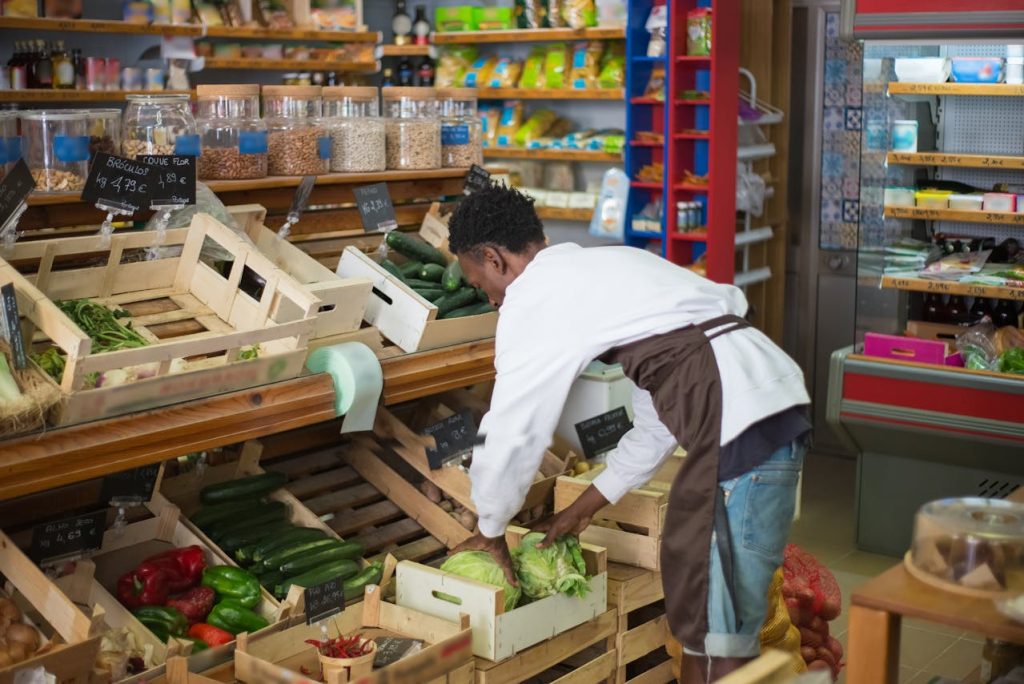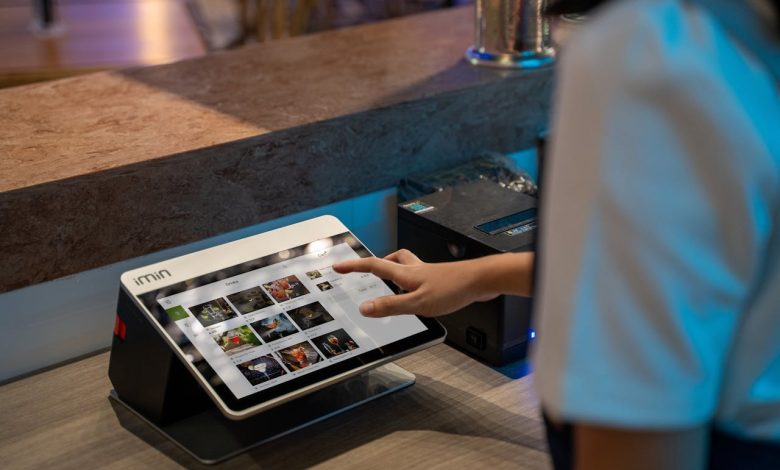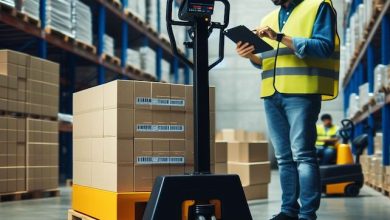What Does POS Stand for in Retail? Complete Guide
If you’re wondering what does POS stand for in retail, the answer is simple: it stands for Point of Sale. A POS is the system that businesses use to complete sales transactions. It’s not just a cash register it’s a complete tool that helps retailers manage everything from payments to inventory and even customer relationships.
Why is this important? Because a POS system is the backbone of any successful retail business. It ensures that transactions are smooth, records are accurate and operations run efficiently.
Whether you’re a small shop owner or exploring career opportunities where POS experience is valued, knowing how these systems work can give you a real edge.
How Does a POS System Work in Retail?
A POS system might seem like just a fancy way to take payments, but it’s much more than that. It’s where everything in a retail business comes together—sales, inventory and even customer data. Whether you’re running a small shop or managing a large chain a POS system keeps things organized and efficient.
Here’s how it works: When a customer decides to buy something, the POS system processes the transaction. It calculates the total applies discounts if needed processes payments (whether it’s cash, card, or digital) and updates the inventory in real time. This ensures that your stock is always accurate, helping you avoid overselling or running out of popular items.
But what does POS experience mean? For employees, it’s about knowing how to operate the system—scanning items, managing returns, and handling payments.
For business owners, it means leveraging the system’s features to make smarter decisions, like understanding which products sell best or when to restock inventory.
The retail POS meaning goes beyond technology it’s about creating a seamless shopping experience for your customers while giving you the tools to grow your business. A good POS system not only saves time but also helps retailers provide faster more personalized service.
Key Components of a POS System
To fully understand how a POS system works let’s break it down into its key components. These are the tools and features that work together to keep your retail operations running smoothly.
POS Hardware: The Physical Tools
The hardware is what you see and touch when completing a transaction. This can include:
- Cash Registers: Traditional yet essential for handling cash payments.
- Barcode Scanners: Quickly input product details and reduce errors.
- Receipt Printers: Provide customers with proof of purchase.
- Card Readers: Accept debit, credit, or digital payments seamlessly.
Some systems even include mobile POS devices which allow employees to process sales from anywhere in the store, improving customer convenience.
POS Software: The Brain of the System
The software powers the hardware and helps you manage key aspects of your business. Some important features include:
- Inventory Management: Tracks stock levels in real time and alerts you when it’s time to reorder.
- Sales Tracking: Provides detailed reports on what’s selling and what’s not.
- Payment Processing: Ensures fast, secure, and diverse payment options.
- Employee Management: Keeps track of work schedules, sales performance, and clock-ins.
- Customer Relationship Management (CRM): Helps you manage customer details and loyalty programs.
Integration for a Seamless Experience
A modern POS system is designed to integrate with other tools, like accounting software, e-commerce platforms, or marketing tools. This integration saves time by syncing data automatically, helping you make smarter business decisions.
What Does POS Experience Mean in Retail?
what is pos experience means understanding how to use these tools to maximize efficiency. Employees benefit by learning how to operate hardware and software smoothly, while business owners gain insights into improving their processes.
Features That Define POS Experience in Retail
A well-designed POS system doesn’t just process sales—it offers a suite of features that can simplify business operations and enhance customer satisfaction. Here are some of the key features that define a great POS experience in retail:
Payment Processing
At its core, a POS system ensures fast and secure payment processing. Whether customers prefer cash, credit cards, or digital wallets, a good POS can handle it all with ease. Modern systems also support contactless payments, which are becoming increasingly popular for their speed and convenience.
Inventory Management
One of the standout features of a POS system is its ability to manage inventory in real time. It automatically updates stock levels after each sale helping you avoid issues like overselling or running out of popular items. Some systems even offer alerts when stock is low or integrate with suppliers to simplify reordering.
Sales and POS Reports
POS systems generate detailed reports that provide insights into sales trends, customer preferences, and overall performance. These reports can help you identify your best-selling products, peak shopping times, and areas where improvements are needed.
Employee Management
Managing employees becomes easier with a POS system that tracks schedules, sales performance, and work hours. It gives you a clear picture of your team’s productivity and ensures fair compensation based on their contributions.
Customer Relationship Management (CRM)
CRM tools integrated into POS systems allow businesses to store customer details, track purchase histories, and offer personalized discounts or loyalty rewards. This not only builds customer loyalty but also enhances the shopping experience.
Choosing the Right POS for Your Business
Selecting the right POS system is a crucial decision for any retailer. With so many options available, it’s essential to find one that matches your business needs while offering flexibility and ease of use. Here’s a breakdown to help you make the best choice:
Types of POS Systems
Not all POS systems are created equal. Depending on the size and nature of your business, you may consider:
- Traditional POS Systems: These are fixed systems often seen in brick-and-mortar stores, featuring cash registers, barcode scanners, and receipt printers.
- Mobile POS Systems: Perfect for businesses on the go, mobile POS systems work on tablets or smartphones, allowing you to process sales from anywhere.
- Cloud-Based POS Systems: These systems store data online, offering real-time updates and the ability to manage your business remotely.
- Self-Service POS: Commonly used in quick-service restaurants and supermarkets, these systems let customers complete transactions independently.
Key Factors to Consider
When choosing a POS system, keep the following in mind:
- Business Size and Type: Small businesses may benefit from simple and cost-effective systems, while larger retailers may require advanced features like multi-location support.
- Integration Options: Ensure the POS system integrates with your existing tools, such as accounting software or e-commerce platforms.
- Ease of Use: A POS system should be intuitive and easy for both you and your employees to operate.
- Scalability: If you plan to grow your business, choose a POS that can scale with you, adding features or hardware as needed.
Customizing a POS for Your Retail Needs
Every business is unique, and your POS system should reflect that. For example:
- A boutique shop may prioritize inventory tracking and personalized CRM features.
- A quick-service restaurant might focus on speed, mobile POS devices, and self-service kiosks.
- A multi-location retailer may need cloud-based solutions to manage operations across stores.
Getting the Most Out of Your POS
To maximize the benefits of your POS system:
- Train your staff thoroughly on its features.
- Regularly update the system to ensure optimal performance and security.
- Use reports and analytics to make informed business decisions.
What Does POS Experience Mean in the Context of Choosing a System?
Having POS experience means understanding how to evaluate and implement a system that meets your specific needs. It’s about making smart choices that enhance customer satisfaction streamline operations, and contribute to your business’s success.
How do you Use a Krups Coffee Machine: Step-by-Step Guide

Benefits of POS Systems in Retail
Investing in a POS system offers more than just an efficient way to handle transactions—it can transform how your business operates. Here are the key benefits that make a Point of Sale (POS) system an essential tool for retailers:
Saves Time and Increases Efficiency
A POS system simplifies time-consuming tasks like tracking sales, managing inventory, and processing payments. It ensures accuracy at the checkout counter, speeds up transactions, and reduces the chances of human errors. For small businesses, this efficiency can be a game-changer.
Provides Real-Time Inventory Insights
One of the biggest advantages of a POS system is its ability to update inventory in real time. This means you’ll always know what’s in stock which items are running low, and which ones aren’t selling well.
Understanding the definition of point of sale transaction includes this critical feature, as every transaction directly impacts inventory management.
Enhances Customer Experience
When customers experience quick, hassle-free checkouts, they are more likely to return. Modern POS systems also offer personalized options, like loyalty programs discounts and targeted promotions, which help build stronger relationships with your customers.
Boosts Employee Productivity
A good POS system simplifies tasks for employees, such as processing sales, handling returns, and generating reports. This leads to improved job satisfaction and higher productivity.
For businesses, understanding what does POS experience mean in terms of employee efficiency can lead to better training and smoother operations.
Offers Valuable Business Insights
Most POS systems generate detailed reports that help you make data-driven decisions. From identifying your top-selling products to understanding customer preferences, these insights can guide your marketing strategies and inventory planning.
Retail POS Meaning Beyond Transactions
Ultimately the retail POS meaning goes far beyond simply processing payments. It’s about creating a seamless system that supports every aspect of your business from operations to customer satisfaction. By leveraging these benefits, businesses can improve both their day-to-day efficiency and long-term profitability.
Conclusion:
The role of Point of Sale (POS) systems in retail has evolved far beyond a simple tool for completing transactions. Today, a POS system serves as the backbone of a business streamlining operations enhancing the customer experience, and providing actionable insights to drive growth.
Whether you’re just starting or managing a thriving business understanding what does POS stand for in retail is the first step to unlocking its full potential.
From real-time inventory tracking to seamless payment processing, the features of modern POS systems address the challenges retailers face daily. They help businesses save time reduce errors and adapt to changing consumer demands.
Moreover, the definition of point of sale transaction has expanded to include tools that integrate with marketing accounting and e-commerce platforms making it an all-in-one solution for retailers.
As technology advances POS systems will continue to innovate. Features like AI-powered analytics advanced CRM, and even mobile-first solutions are already shaping the future of retail.
For businesses, this means staying competitive by adopting systems that are not only efficient but also adaptable to industry trends.
FAQs
What is a POS system in retail?
A POS system in retail refers to a Point of Sale system that businesses use to process sales transactions. It includes hardware like barcode scanners, receipt printers and card readers along with software that tracks inventory, manages sales and generates reports.
It’s the central hub that keeps retail operations running efficiently.
What does POS stand for in business?
In business POS stands for Point of Sale which is the place where a customer completes a purchase. It’s more than just a checkout counter it’s an integrated system that manages sales payments inventory and customer data.
What does POS mean in a store?
In a store POS means the location or system used to process transactions. It’s the combination of hardware and software that helps staff handle payments apply discounts, and provide receipts making the shopping experience seamless for customers.
What is POS in the workplace?
In the workplace POS refers to the tools and processes used to handle business transactions. Employees with POS experience are trained to operate these systems ensuring accurate sales tracking efficient payment processing and smooth operations.





